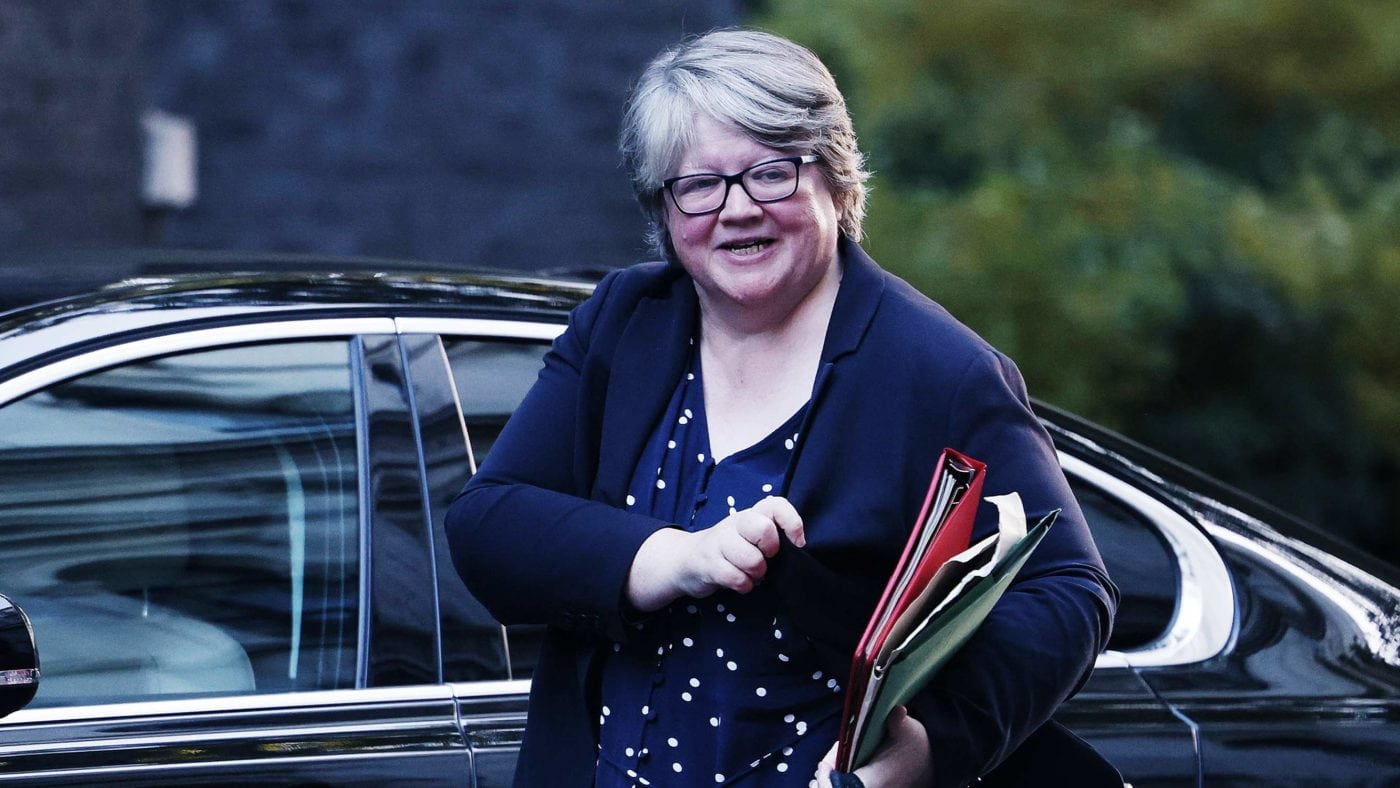You can’t help but feel for the libertarians. They wait decades for a government for whom freedom is a political priority, and calamity ensues almost instantly.
Granted, not everything that has gone wrong in the past few weeks has been the Government’s fault. Nor will much of what goes wrong on and after October 31, when Liz Truss and Kwasi Kwarteng will almost certainly fail to find a package of cuts both big enough to balance the books and acceptable to MPs.
But much of it is, and the price to be paid for that is not just a Labour government after the next election. It also means wasting probably the most ‘libertarian’ Cabinet we’ll see for a generation.
Thérèse Coffey is probably the best example of this. When was the last time we had a smoker appointed Health Secretary who didn’t immediately render cringing obeisance to the puritan lobby? (Even Sajid Javid, who supposedly reads Ayn Rand once a year, announced he was quitting smoking once he took up the role.)
Nor is that the limit of Coffey’s commitment to her convictions. She has also refused to recant her previous votes against such measures as plain packaging, and yesterday the Guardian reported that she may try and halt, at least for a time, the long march towards banning tobacco. Imagine what she might have achieved in a government with a bit of momentum and political capital!
We might even have got menthols and my beloved cloves back behind the counter – a really easy Brexit win.
Yet in truth when it comes to tobacco policy, leaving the EU wasn’t really a question of ‘taking back control’. Bizarrely, smoking policy continues to be set largely by a secretive coalition of big-money donors and NGOs, via international bodies which make a point of excluding scrutiny and pushing an agenda which even anti-smokers may object to, since it places a puritan value on total abstinence over harm reduction.
Tobacco policy is largely set through the World Health Organisation Framework Convention on Tobacco Control (FCTC). Every two years, it sets policy through the Conference of Parties (COP). The United Kingdom is represented at these (the next, COP10, is scheduled for 2023) not by ministers or other political appointees, but by officials from the Department of Health. On occasion, the former have apparently not even been aware it was taking place.
This might matter less if the proceedings of the WHO were open and accessible. But they’re anything but: every time, delegates – comprising the aforementioned officials along with a boatload of anti-tobacco NGOs – vote to exclude not just the press but also neutral, let alone critical, observers.
That done, the COP proceeds to draw up policy – which is binding on elected governments which have signed up to the FCTC, including our own – in total secrecy. The balance of the room naturally tends towards a deeply illiberal set of policy conclusions; anecdotally, the aforementioned NGOs tend to shout down any national delegates minded to deviate from the hard-line consensus.
Given the way the WHO disgraced itself during the pandemic, you might think that the last few years would have prompted some sort of re-assessment of the UK’s relationship with it. You’d be wrong.
Instead, the current approach seems to be to combine maximal contributions with minimal influence. According to the WHO website, the UK is by far the biggest contributor of so-called ‘Core Voluntary Contributions’ – that is, money that is simply handed to the Organisation to do with as it pleases.
We really are in a league of our own: British CVC spend tops $135m, almost $100m more than second-placed Sweden.
Even if the Government weren’t minded to disengage fully from the WHO, which probably still does important work in some areas, why persist with such a servile approach? Why not shift over to ‘Specified Voluntary Contributions’, which are ‘are tightly earmarked to specific programmatic areas and/or geographical locations and must be spent within a specified timeframe’.
(You can tell the WHO isn’t keen on SVCs. They reportedly make up fully 88% of its budget, but only get two lines on their funding page – and no graph putting the names of the big spenders up in lights. But the description just sounds like the proper way to spend public money.)
At the same time, a freedom-minded government could easily take back control of smoking policy by withdrawing from the FCTC. This wouldn’t necessitate repealing a single piece of existing legislation, but it would put the direction of policy back in the hands of our elected politicians whilst allowing them more scope to cooperate with the industry on issues such as tobacco harm reduction.
(The WHO, Michael Bloomberg, and other NGOs in this space take a staunch ideological stance against harm reduction, or any role for industry in the discussion. This is the public health equivalent of preaching abstinence to combat STDs, yet it’s taken seriously in this space.)
In a happier timeline, all this would have been relatively achievable. Alas, instead it seems likely that the Truss Government will soon be facing headwinds so strong it will look for any port in a storm – and the applause of a well-organised lobby for ‘doing the right thing’ will seem very appealing indeed. And even if not, they probably won’t be in for long enough to effect any meaningful change in policy, let alone deliver structural reform.
But raise your pipe to Coffey for at least standing athwart history shouting ‘pause’. It’s the best we tobacco-lovers are likely to get for a long time.
Click here to subscribe to our daily briefing – the best pieces from CapX and across the web.
CapX depends on the generosity of its readers. If you value what we do, please consider making a donation.


